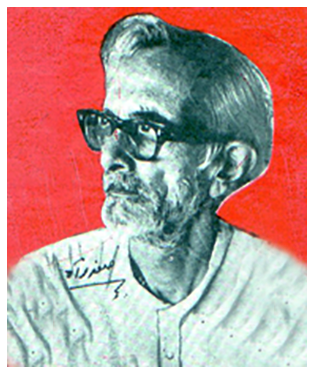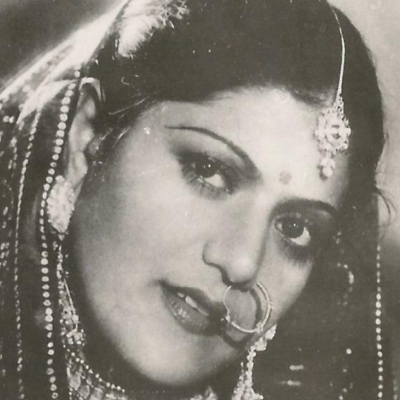Dr Safdar Aah

Subscribe to read full article
This section is for paid subscribers only. Our subscription is only $37/- for one full year.
You get unlimited access to all paid section and features on the website with this subscription.
Not ready for a full subscription?
You can access this article for $2 , and have it saved to your account for one year.
- Real Name: Dr. Safdar Aah Sitapuri
- Born: 28 August 1903 (Sitapur, Uttar Pradesh)
- Died: 29 July 1980
- Primary Cinema: Hindi
“Dil jalta hai toh jalne de, aansu na baha fariyaad na kar”
A melody that haunts the memories of generations past, and continues to echo down the hallowed halls of Indian cinema history, this was the ghazal that catapulted the singer Mukesh to fame. What most have forgotten, however, is that the lyrics for this song were penned by the inventive lyricist Safdar ‘Aah’, or Dr. Safdar Aah Sitapuri. During his brief stint in the world of Hindi cinema, Safdar Aah took on the various roles of lyricist, author and film director, leaving a sprawling contribution to the medium that has nearly been forgotten over the years.
Born in Sitapur in Uttar Pradesh in 1905, Dr. Safdar Aah received his education in Sitapur, Lucknow and Varanasi. Growing up, he became proficient in Arabic, Farsi, Sanskrit, English, Urdu and Hindi. As a student in school, Safdar Aah began to write shayari, which received praise and encouragement even from those long ensconced in the field. In 1919, when he was only 14 years old, his writings began to be published in various newspapers and journals. At 17, he published his first collection of poems under the title Anjaam-e-Mohabbat. In 1928, he started publishing his own Urdu weekly, Hatif. Within the next four years, he expanded his readership further with the publication of the Hindi-language weekly Janta, for which he was also the editor.
As he grew to be nationally recognized for his unique talent with words, word of his skill reached the producer-director Mehboob. Mehboob was so impressed with one of his poems that he immediately wrote to him and requested him to travel to Mumbai. Though he was somewhat disinterested in films, Safdar Aah travelled to Mumbai on the pretext of touring the city.
The journey turned out to be a fateful one, and soon, Safdar Aah wrote the lyrics for songs in several of Mehboob’s films, like Alibaba (1940), Bahan (1941), Garib (1942), Nai Roshni (1941) and Roti (1942). After his initial collaboration with Mehboob, Safdar Aah also worked with other filmmakers. In the meantime, he continued writing revolutionary poetry in Urdu, but most of these did not see the light of day.
For the film Pehli Nazar (1945), Safdar Aah wrote the story and dialogue as well as the songs. Set to Anil Biswas’s music, Safdar Aah’s lyrics provided Mukesh with his debut song that became a massive hit, pulling audiences into the halls over and over again. Apart from this, Safdar Aah also wrote the story and dialogue for a few other films like Prarthana (1943), 1857 (1946) and Omar Khayyam (1946).
Following this, Safdar Aah decided to put his longstanding experience in writing for films to a different use and started directing films himself. Starring actors like Husna, Kanhaiyalal and Sheikh Mukhtar, his film Bhookh (1947) is still remembered as a landmark social drama of its time.
Incidentally, Safdar Aah penned dialogues for a film for the last time with Mehboob’s film, Son of India (1962), bringing his career full circle. Post 1962, he withdrew from writing for films, and started exploring a range of diverse topics like literature, tourism and metaphysics. He started living in Ganeshpuri in Maharashtra, where he spent the remainder of his life. During his stay there, he composed and published several books, including two tomes on Mira and Kabir in Urdu. He passed away on 29 July 1980.
References
Image credit: https://zarinasani.org/1022/safdar-aah-bhaisiyat-shair









.jpg)



